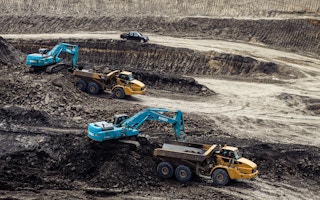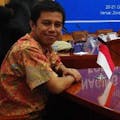Among all fossil fuels, coal is the most polluting. In a world that needs to achieve net-zero emissions by 2050 as outlined by the Paris Agreement, new investment in coal has no place.
Yet although Singapore has unveiled its ambition to “be a leading centre for green finance in Asia and globally” in its Green Finance Action Plan, the roadmap currently does not prevent environmentally destructive investments. This enables Singapore entities to keep funding the coal industry, threatening to tarnish the city-state’s image as a green financial hub.
Singaporean politicians have long said that environmental issues are a priority, and the country has been increasing its environmental efforts on a national level with the launch of the Singapore Green Plan 2030.
From pledging to peak emissions in 2030 in the Long Term Low-Emissions Development Strategy to quintupling solar deployment by 2030 to meet 3 per cent of Singapore’s 2030 electricity needs, Singapore has shown its commitment to take climate change mitigation more seriously than before. US$2 billion has been allocated for the nation’s Green Investment Programme, which supports public market investment strategies that have a strong green focus.
However, Singapore lenders and companies continue to back coal ventures across Southeast Asia. In Laos, for instance, Evolution Power Investment Corporation, a Singaporean firm, has proposed to develop a US$1.7 billion coal-fired power plant. In Indonesia, Singapore-based financial institutions continue to provide funding support for the coal mining industry. Based on Adaro Energy Annual Report 2020, from 2013 to 2017, Adaro Energy subsidiaries received credit facilities from Singapore-based banks (OCBC and DBS) of up to US$1.8 million.
At the beginning of May 2021, Adaro Energy, one of Indonesia’s largest coal mining companies, secured funds from banks operating in Singapore, including UOB, Standard Chartered, SMBC, QNB, Maybank, HSBC, Citibank, CIMB, BRI, and BNI. Due to limited domestic funding, Indonesian coal companies rely a lot on international funding to open coal mines.
Data from Indonesia Investment Coordinating Board (BKPM) showed that from 2019 to 2021, Singapore was the third-largest investor in coal and lignite mining in Indonesia, with an investment value of US$119 million. Within the two years, Singapore has also become the largest proponent for coal and lignite mining in Indonesia, totalling 155 projects.
Singapore-based financial institutions contribute significantly to supporting Indonesia as the world’s largest coal exporting country, resulting in emissions of 670 million tonnes of carbon dioxide emissions, or 13 times of Singapore’s carbon dioxide emissions in 2016.
While the three major banks in Singapore—DBS, UOB, and OCBC—have pledged not to finance any new coal-fired power plants, only DBS has announced a commitment to phase out thermal coal exposure, which includes coal mining. Both UOB and OCBC, which pride themselves on their sustainability credentials, should follow suit.
However, commitments by individual companies or financial institutions in Singapore are not enough. There are currently no regulations in Singapore to limit financial institutions from engaging in environmentally destructive projects, including coal mining. The Monetary Authority of Singapore (MAS) should be regulating these activities.
At least seven companies doing coal mining in Indonesia are also listed on the SGX, including the following: Abterra, BlackGold Natural Resources, GeoEnergy Resources, Golden Energy. Resources Global, Resources Prima, Sincap Group.
In addition, derivative contracts for coal are available for trading on the SGX. Singapore might not be a huge user of coal power, but has a huge role in facilitating coal trading and finance.
Although MAS has released the ‘Guidelines on Environmental Risk Management for Banks’, there are no penalties for ignoring the guidelines, other than a potential impact on MAS’ overall risk assessment of the institute.
MAS should regulate the finance industry more stringently, paying particular attention to environmental impacts in other countries, as climate impacts from current financial activities are already affecting Singapore and the region, and will only continue to get worse.
A shift away from coal finance in the region would create space for the low carbon development that is urgently needed in the region—both to mitigate climate change, and to adapt to the effects of climate change that are already ravaging the region.
Due to a combination of geographical location and robust infrastructure, Singapore may be fortunate not to suffer the effects of climate change on the scale of what countries like Indonesia, Vietnam or the Philippines have been facing, but the city-state has been facing an increasing amount of intense rainfall and flash floods, as well as higher average temperatures over the years.
As a country that imports more than 90 per cent of the food consumed, Singapore also faces threats to its food supply when climate change impacts ruin the crops of farmers in Thailand, Malaysia, the rest of Southeast Asia, and the world.
To be a responsible member of the global community, Singapore must not only look at reducing the greenhouse gas emissions generated within the country, but also the emissions in surrounding countries that are due to the decisions made in Singapore. To cease facilitating coal in the region would be a key step Singapore can take in helping the world limit global temperature rise to 1.5 degrees Celsius.
Ho Xiang Tian is the co-founder of environmental group LepakInSG. Pius Ginting is coordinator of AEER (Action for Ecology and People Emancipation). AEER works to campaign for mitigation of climate change in the energy sector.












